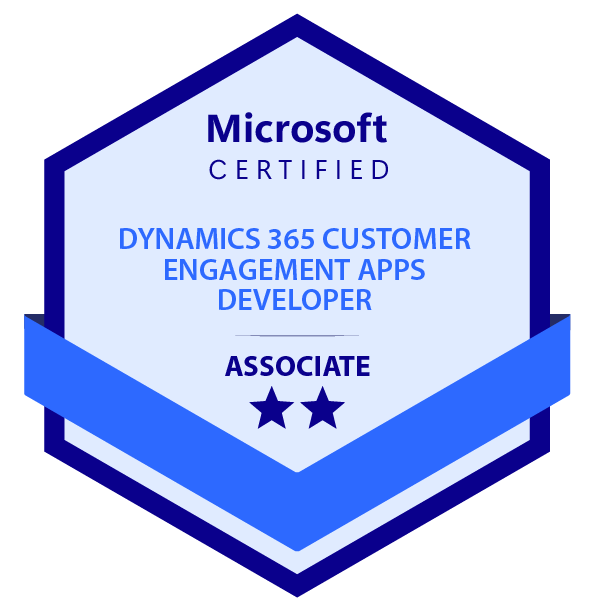
Summary of the Curriculum
This course is designed for developers who want to build, extend, and integrate Microsoft Dynamics 365 Customer Engagement (CE) apps, including Sales, Customer Service, Marketing, and Field Service. The curriculum focuses on customizing model-driven apps, building Power Apps, writing plug-ins, creating custom connectors, and developing integrations using REST APIs and Azure services. You’ll also learn how to use the Power Platform CLI, manage application lifecycle (ALM), and work with Power Automate, PCF controls, and Dataverse.
Relevant Industries
Tech Services, CRM Product Teams, System Integrators, ISVs, Enterprise IT, and companies customizing Dynamics CE apps for business workflows.
Overview of Technology
Customer Engagement Apps in Dynamics 365 are built on Microsoft’s Power Platform and Dataverse. This developer-centric course teaches hands-on skills with JavaScript, C#, PCF, Azure Functions, and integration techniques that allow you to extend CRM capabilities across sales, service, and marketing.
Enrollment Process
- Sign up on the platform and choose your preferred batch.
- Start your classes on the scheduled date .
- Get access to learning materials and project dashboards.
- Begin your training journey with expert-led sessions.
- Apply your learning through real-world case studies and projects,
workflows, and extend applications with JavaScript, PCF components, REST APIs, and Azure integrations.
Detailed Course Curriculum
- Create a Technical Design (10–15%)
- Interpret and analyze business requirements
- Design solution components and architecture for Power Platform and Dynamics 365 CE apps
- Identify integration points and extension opportunities
- Apply security and compliance requirements to technical designs
- Build Power Platform Solutions (10–15%)
- Create and configure Power Apps (model-driven and canvas apps)
- Build Dataverse tables, relationships, and business rules
- Implement forms, views, and dashboards
- Configure security roles, field-level security, and data access
- Implement Power Apps Improvements (5–10%)
- Implement advanced canvas app features and complex Power Fx formulas
- Build reusable component libraries
- Utilize Power Automate cloud flows for business logic
- Optimize and troubleshoot app performance (canvas and model-driven apps)
- Extend the User Experience (10–15%)
- Apply business logic in model-driven apps using client scripting (JavaScript)
- Build and register event handlers and commands
- Create and use Power Apps Component Framework (PCF) code components
- Configure and use Device, Utility, and Web API features in component logic
- Extend the Platform (40–45%)
- Develop custom connectors and Azure Functions for integration
- Implement plug-ins and custom workflow activities in Dataverse
- Use Web API and SDK for custom business logic
- Configure and manage solution lifecycle (ALM) using tools like Power Platform CLI and Azure DevOps
- Apply authentication, security, and data access best practices
- Develop Integrations (5–10%)
- Integrate with external systems using RESTful APIs, Azure Service Bus, and event frameworks
- Implement data import/export, custom connectors, and virtual tables
- Integrate Power Platform with Microsoft 365, Dynamics 365, and Azure services
Additional Skills and Knowledge
- Strong applied knowledge of Microsoft Power Platform services, including boundaries and constraints
- Experience with JavaScript, TypeScript, C#, HTML, RESTful Web APIs, Visual Studio, and Azure
- Understanding of solution deployment, debugging, and monitoring tools